
The faculty, fellows and trainees within the Division of Endocrinology, Diabetes & Metabolism at Augusta University actively engage in both basic and clinical research across diverse areas.
Osteoporosis Research
Within our Clinical Research Programs, we are dedicated to exploring novel drug therapies for osteoporosis. Additionally, we delve into the effects of cutting-edge technologies on the management of diabetes. Through these initiatives, our goal is to contribute valuable insights to advance medical knowledge and enhance patient care in these crucial areas of healthcare.
Thyroid & Parathyroid Research
The Thyroid and Parathyroid Center at Augusta University brings together the collective expertise of endocrinologists, surgeons, and radiologists to offer a comprehensive and coordinated approach to therapy for thyroid and parathyroid conditions. Our research endeavors are specifically directed towards the identification of early biomarkers for the diagnosis of thyroid nodules and adrenal adenomas. By leveraging the interdisciplinary collaboration of our specialists, we aim to advance the understanding of these conditions and enhance diagnostic capabilities, ultimately contributing to more effective and timely interventions for patients.
Immune checkpoint inhibitors Research
Immune checkpoint inhibitors (ICIs), employed in cancer treatment, may induce immune-related adverse events (irAEs), with endocrine irAEs being prevalent, affecting approximately 10% of ICI-treated patients. Our clinical research focused on an in-depth investigation into immune checkpoint inhibitor (ICI)-related endocrine immune-related adverse events (irAEs), with a focus on the management and development of a clinical algorithm for screening and monitoring these occurrences.
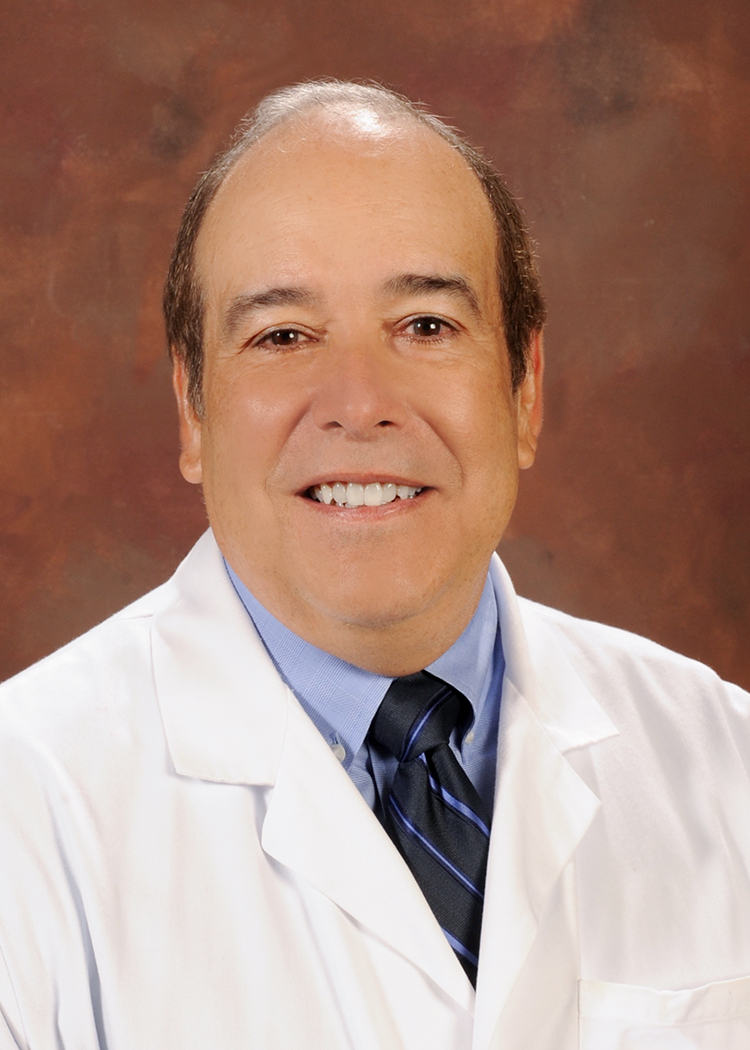
CARLOS ISALES, MD
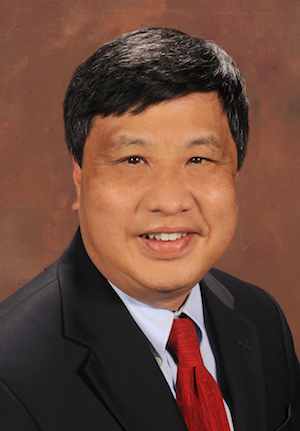
EDWARD CHIN, MD
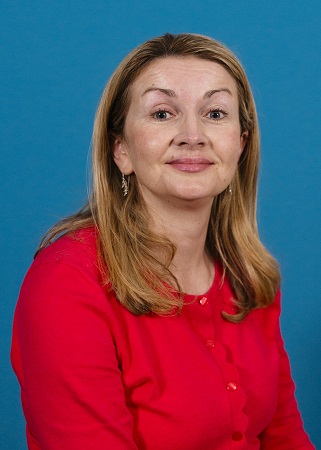
BRIDGET SINNOTT, MD
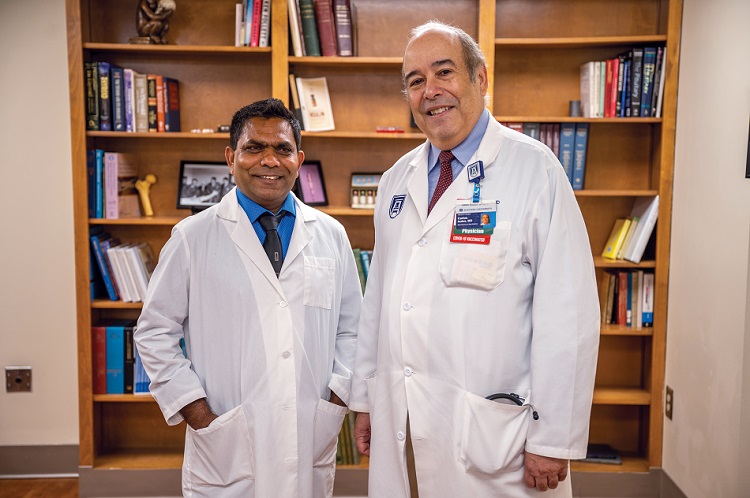
The Division of Endocrine Basic Science Research at Augusta University is dedicated to various aspects of aging with the aim of enhancing overall healthy aging and longevity. This research division has successfully obtained an $11 million initiative (PO1AGO36675) funded by the National Institutes of Health. The initiative is specifically designed to investigate the role of age-related signaling in the pathology of bone and muscle.

Dr. Carlos Isales, MD
Dr. Isales is a physician-scientist who serves as the Division Chief and co-director of the Center of Healthy Aging. His research focuses on bone health, regenerative medicine, and healthy aging. Dr. Isales is actively involved in investigating the complex field of epigenetic changes induced by aging. His work explores the profound effects of these changes on the functionality of mesenchymal stem cells and their broader implications for tissue regeneration. His research is dedicated to unraveling the molecular modifications occurring at the epigenetic level due to aging, with a specific focus on understanding how these changes influence the functionality of mesenchymal stem cells. His overarching goal is to gain a comprehensive understanding of these processes, shedding light on the mechanisms that govern tissue regeneration. These insights hold the potential to inspire innovative approaches aimed at promoting and enhancing regenerative capabilities, especially in the aging population.
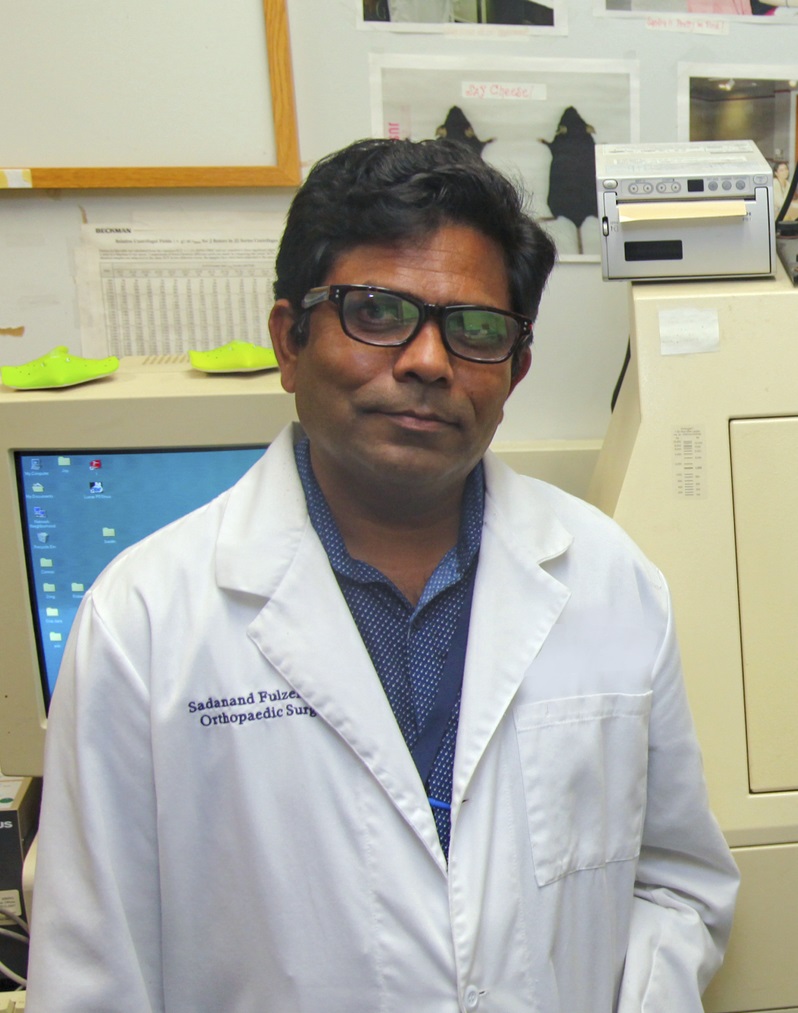
Dr. Fulzele, DVM, PhD
Dr. Fulzele is a Director of Endocrine Research specializing in stem cell, bone and muscle health. Dr. Fulzele's lab is at the forefront of investigating the intricate relationship between nutrition metabolism and age-related muscle and bone loss. With a primary focus on understanding how nutrition impacts musculoskeletal health over time, the team explores the roles of Tryptophan, Arginine, and Vitamin C in the pathophysiology of age-related musculoskeletal conditions. Beyond this, their research extends to exploring microbiota-derived tryptophan metabolites, illuminating their potential impact on brain-gut-brain pathways and their intricate connections to musculoskeletal well-being. Additionally, the lab delves into the fascinating dynamics between the brain and bone marrow, uncovering pivotal signaling pathways relevant to conditions like traumatic brain injury (TBI) and stroke. Through collaborative, interdisciplinary efforts, Dr. Fulzele's dedicated team is committed to pioneering novel therapeutic strategies to combat age-related diseases affecting muscles, bones, and neurological health.
